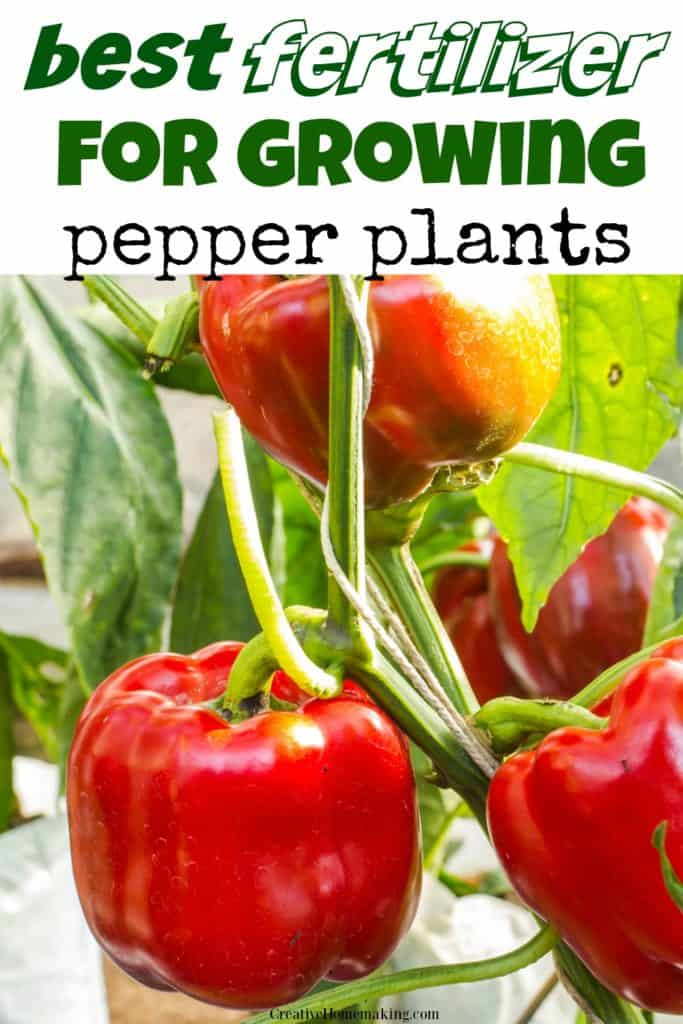Discover the Best Fertilizers for Peppers: Top Picks for Optimum Development
Discover the Best Fertilizers for Peppers: Top Picks for Optimum Development
Blog Article
How Fertilizers Play a Crucial Duty in Growing Abundant and healthy and balanced Pepper Crops
Plant foods serve as the backbone of effective pepper farming, using a tactical strategy to nourishing the dirt and fostering optimal plant growth. The elaborate dancing in between essential nutrients and the pepper plants' physical processes underscores the critical duty that fertilizers play in making certain a bountiful harvest. From fueling durable origin development to boosting disease resistance, the effect of plant foods is far-reaching in the cultivation of healthy and balanced and worthwhile pepper plants. Stay tuned to discover the nuanced methods in which plant foods contribute to the prospering of pepper plants and the sustainable techniques that underpin their efficiency.
Importance of Nutrient-Rich Fertilizers
The utilization of nutrient-rich plant foods plays a crucial role in boosting the performance and high quality of pepper plants in modern farming methods. Nitrogen, potassium, and phosphorus are primary nutrients that are critical for the growth and development of pepper plants.
Poor degrees of these nutrients can cause stunted growth, lowered returns, and vulnerability to diseases (best fertilizers for peppers). Nutrient-rich fertilizers provide a targeted remedy to guarantee that pepper plants receive the necessary components for optimal growth and performance. In addition, these fertilizers help enhance soil fertility with time, developing a sustainable atmosphere for long-term pepper farming
Enhancing Plant Growth and Advancement
To maximize plant development and growth in pepper crops, strategic application of nutrient-rich fertilizers is important. Fertilizers play a crucial duty in enhancing the overall health and efficiency of pepper plants by providing them with necessary nutrients that might be doing not have in the dirt. Phosphorus, nitrogen, and potassium are primary macronutrients needed in big amounts by peppers for durable development. Nitrogen aids in leafed green development and general plant vitality, phosphorus sustains origin development and blossom development, while potassium contributes to disease resistance and fruit high quality.
In enhancement to these macronutrients, trace elements such as iron, zinc, and magnesium are likewise essential for the correct performance of various plant processes. Iron, for circumstances, is required for chlorophyll manufacturing, which is essential for photosynthesis and overall plant development. Zinc plays an essential duty in enzyme activity and hormone synthesis, influencing plant growth and advancement at a mobile level. Magnesium is crucial for the formation of chlorophyll and general power transfer within the plant.

Boosting Condition Resistance With Fertilizers
By purposefully including targeted fertilizers, farmers can reinforce the disease resistance of pepper crops, guaranteeing optimal plant wellness and performance. Fertilizers including important nutrients like potassium, phosphorus, and nitrogen play a critical duty in enhancing pepper plants' immune systems, making them much more resistant to various diseases.

Optimizing Pepper Yield With Fertilizing
Making use of a balanced fertilization approach is crucial to achieving maximum pepper return and ensuring ideal plant productivity. By providing peppers with the ideal nutrients at the best time, farmers can substantially enhance their return possibility. Phosphorus, nitrogen, and potassium are essential elements for pepper development, with nitrogen helping in leaf and stem development, phosphorus supporting root development and blossom over at this website development, and potassium promoting overall plant wellness.
To take full advantage of pepper return, it is essential to perform dirt examinations to figure out existing nutrient levels and determine any kind of deficiencies that need to be dealt with. Based upon these results, farmers can create a tailored fertilization plan that fulfills the particular requirements of their pepper plants. In addition, proper fertilization techniques such as split applications throughout the expanding period can guarantee constant nutrient availability for the plants.

Lasting Plant Food Practices for Peppers
In thinking about sustainable plant food methods for peppers, it is important to concentrate on lasting soil health and wellness and ecological stewardship in conjunction with taking full advantage of plant productivity. One essential approach is the use of organic fertilizers such as garden compost, visit site manure, or cover plants, which not just provide important nutrients to the peppers but also contribute to soil framework and microbial task. best fertilizers for peppers.
In addition, accuracy agriculture methods, such as dirt testing and targeted nutrient applications, can help maximize fertilizer use, making sure that peppers get the nutrients they require without excess overflow right into waterways. This not only profits the environment by reducing contamination however additionally conserves costs for farmers by minimizing waste. By embracing sustainable plant food techniques, pepper growers can guard the health of their crops, dirt, and surrounding communities for future generations.
Verdict
In conclusion, plant foods are vital for cultivating plentiful and healthy pepper plants. best fertilizers for peppers. They supply necessary nutrients for plant growth and advancement, increase condition resistance, and take full advantage of yield. By applying sustainable plant food techniques, farmers can ensure the long-term health of their pepper plants and add to a much more reliable and environmentally-friendly agricultural system
The intricate dance between crucial nutrients and the pepper plants' physical processes emphasizes the pivotal duty that fertilizers play in making certain a plentiful harvest.To enhance plant growth index and development in pepper plants, tactical application of nutrient-rich plant foods is essential. Plant foods play an important role in enhancing the overall health and performance of pepper plants by providing them with important nutrients that may be lacking in the dirt.By purposefully including targeted fertilizers, farmers can boost the disease resistance of pepper crops, ensuring optimal plant health and wellness and performance. Fertilizers consisting of important nutrients like phosphorus, potassium, and nitrogen play a critical duty in enhancing pepper plants' immune systems, making them more resilient to numerous conditions.
Report this page